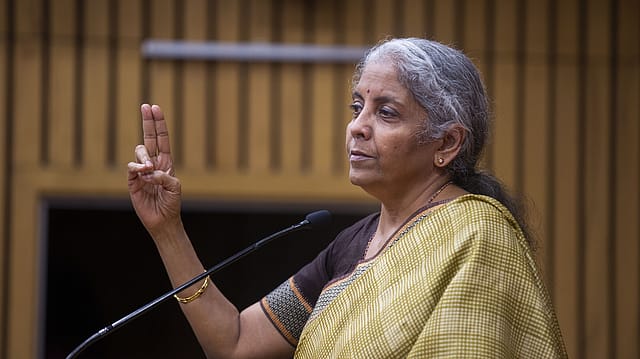Key takeaways from Finance Bill 2023
ADVERTISEMENT

The Lok Sabha on Friday passed the Finance Bill 2023 with key amendments amid sloganeering by Opposition members of Parliament.
In a major setback to debt mutual fund investors, the Finance Bill has proposed changes in taxation of debt mutual funds under which no benefit of indexation for calculation of long-term capital gains (LTCG) on debt mutual funds will be available for investments made on or after April 1, 2023.
Investments in mutual funds where not more than 35% is invested in equity shares of Indian companies will now be deemed to be short-term capital gains. Existing investments and new investments made before March 31, 2023 are not affected by this proposed tax change.
Capital gains from debt funds will now be taxed at an individual's relevant tax slab, irrespective of their holding period.
The Finance Bill also hiked the securities transaction tax (STT) on the sale of options to 0.062% from 0.05%. As per the new rules, option traders will have to pay ₹6,200 for every ₹1 crore worth of turnover as against ₹5,000 that is being paid currently.
On the sale of futures contracts, STT has been hiked by 25% to ₹1,250 on ₹1 crore turnover as against ₹1,000 earlier.
"STT hiked by 25 percent. If an intraday retail trader buys and sells 10 lots of nifty futures, he has to pay Rs 855 in STT or 1.7 points on each Nifty lot; if he trades 10 times a day, he has to capture 17 points of a nifty move every day on Stt alone," tweeted Nikhil Kamath, co-founder of discount brokerage Zerodha.
"This is outside of Exchange charges, Stamp duty, Gst, Brokerage, and Sebi charges. The impact of each is as per the sequence above. Adding all this, he has to capture 30 points between Nifty volatility daily to break even (10 trds/day)," Kamath says.
"By chance, if someone is profitable after all this, they pay the maximum income tax rate. We then wonder why many traders find it hard to be profitable. A robust and liquid stock market is cardinal to our economy; the small guy helping make this happen should also be helped," he adds.
The Finance Bill did not offer any relief to start-ups with respect to angel tax provisions. Angel tax will come into effect from April 1, 2024.
While speaking on the Finance Bill, Finance Minister Nirmala Sitharaman said that payments for foreign tours through credit cards are not being captured under the Liberalised Remittance Scheme (LRS) and they escape tax collection at source. The RBI is being requested to look into this with a view to bring credit card payments for foreign tours within the ambit of LRS and tax collection at source thereon, Sitharaman says.
The Finance Bill also proposes to set up a committee under the finance secretary to look into the issue of pensions and evolve an approach to address the needs of employees while maintaining fiscal prudence to protect common citizens.